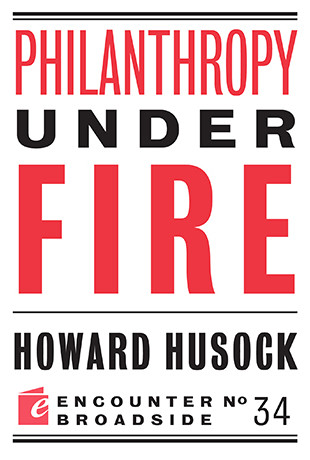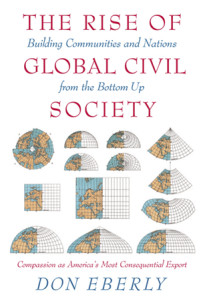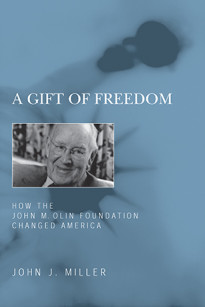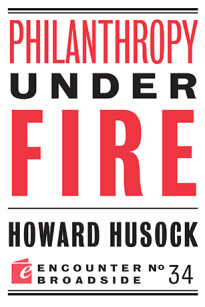In Philanthropy Under Fire, author Howard Husock defends the American tradition of independent philanthropy from significant political and intellectual challenges which threaten it today. Although the U.S. continues to be the most charitable nation in the world, serious efforts seek to discourage traditional, personal charitable giving by changing the tax code, and directing philanthropy toward causes chosen by government. Some voices seek to narrow the very definition of philanthropy to include only direct redistribution of income from rich to poor. In contrast, Mr. Husock broadly defends philanthropy’s causes—from the food pantry to the art museum to the university science lab—as both a source of effective new ideas and as a core aspect of democracy and liberty. In a new and original argument, he asserts that having broad impact does not require a marriage of philanthropy and government. Instead, he says, private programs growing out of the values held by their leaders—and imbued with those values—can have a wide impact through their influence on society’s norms. In this sense, the good that private philanthropy does for American society can far transcend the good that it does for its immediate recipients.
Free shipping on all orders over $40
Philanthropy Under Fire

$5.99
Also Purchase as e-Book
Publication Details
Paperback / 56 pages
ISBN: 9781594037382
PUBLISHED: 09/17/2013
- Media: Request a Review Copy
- Academia: Request an Exam Copy
Philanthropy Under Fire
About the Author
Howard Husock is a Senior Fellow in Domestic Policy Studies at the American Enterprise Institute and a Contributing Editor of City Journal.
Excerpt
Whether some philanthropic purposes are more desirable than others, whether philanthropy is an appropriate or adequate response to important social problems, and whether and how government should use the tax code to encourage philanthropy generally, or only certain types of philanthropy, are controversial matters today in the United States.
One does not have to believe that private giving can or should replace all government social programs to believe that it is, nonetheless, a vital force in American society, and thus one that should continue to have the unfettered discretion that it has historically enjoyed. A century of policy change has significantly narrowed the scope and range of independent philanthropy in America—and has seen a series of arguments arise against it. For reasons of principle and practicality, it deserves a defense.
Related Titles
×






